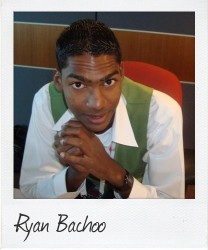"Party loyalty can destroy voters' critical thinking"
May 22 Party politics comes under critical examination by Ryan Bachoo, 24, a Commonwealth Correspondent from Trinidad and Tobago, who argues that voters are being short-changed by the tradition of party loyalty.
Party politics comes under critical examination by Ryan Bachoo, 24, a Commonwealth Correspondent from Trinidad and Tobago, who argues that voters are being short-changed by the tradition of party loyalty.
In early May, former Independent Senator in the Trinidad and Tobago Senate and attorney at law in private practice, Dana Seetahal was assassinated. It brought an end to a quite remarkable career and to a much greater extent, life. Only two weeks before, former T&T President A. N. R. Robinson died. In the space of 13 days, the country lost two of its wisest citizens, both of whom served with distinction in all of what they did.
Last November, I remember reading Ms Seetahal’s column in the Trinidad Express newspaper and promising myself that I would respond to it through my article here for the Commonwealth. Strangely, I never got around to it because it never seemed the right time to tackle the issue. But in that column, Ms Seetahal epitomized everything I thought about her. As a former Course Director in Criminal Practice and Procedure at the Hugh Wooding Law School in Trinidad, she would have spent a large part of her life educating students and future lawyers. But more than that, through her weekly column and daily life, Ms Seetahal would have educated and informed many of the people she came in contact with. It was no surprise then to see soca star, Machel Montano, shed a few tears for a woman who fought hard to defend him during his troubled days.
In her column last November, she tackled the issue of individuality versus party when it came to voting in politics in Trinidad and Tobago. She presented the facts as they were and described the reality of our political system. She ended with this:
In T&T, but for very rare exceptions in equally rare circumstances in political elections, the individual candidate is irrelevant as compared to the party. People in general vote for the party. If an individual contests under the ticket of a particular party he owes his loyalty to that party. If he has differences with the party he must deal with them internally and if they cannot be resolved he must give up his seat.
In a real sense an electoral seat is not that of the candidate, it is the party’s. The party earned it as the party earned the votes, not the individual.
While Ms Seetahal presented the reality of the culture of T&T politics within that article, I mostly disagreed – not with what she said – but rather the system of politics itself. What citizens of Trinidad and Tobago have become are political party-mites. There’s a saying within the country if you support the Peoples National Movement party then you are a PNM-mite, and if you support the United National Congress, then you are a UNC-mite. “Mite” of course being used in the sense of the pest, termite. So, in reality, the majority of our citizens have become slaves to a particular political party rather than being open-minded and unbiased. It means, therefore, that it is irrelevant whether a representative is doing a good job or not within a constituency because voters cast their ballots by party and not by what is happening on the ground.
This is okay – if you work with an affiliated political party and are paid by them. But for the majority of average citizens like me, who live boring and unexcited lives, loyalty to a political party can only spell doom to our lives. What I have noticed over the last decade is that loyalty to a particular party costs much more than it actually rewards. How many of the thousands of people who line up in traffic for hours to get to a political party rally ever actually receive rewards of good jobs, paved roads and proper health care? I’m guessing that if you’re not on the stage, you’re not really benefiting.
But showing support is just one thing. Trinidadians – not so much Tobagonians as I don’t know – will become less and less critical thinkers if the country continues to go down this route. Critical thinking in its most basic form means objectively thinking, and loyalty to a particular party destroys that in every sense of the word, because we can find ourselves digging into the deepest holes to defend the party we support, no matter what wrong they have done. If we take this attitude to other aspects of our lives then we would not be all rounded human beings, but instead leaning on the shoulders of others for support. And that’s exactly what the majority of Trinidadians do by having party cards displaying their loyalty to a particular party.
What we need in Trinidad and even Tobago are more independents. More people who observe and vote on what is being done rather than which political party they like best or grew up in. This culture of loyalty in politics was created by the politicians and they would rather it no other way because it is passed down from generation to generation. But at the moment, I don’t believe enough Trinidadians are thinking for themselves. At the moment, citizens are too politically involved, expecting governments to change every aspect of their lives. Governments promise to do that to get votes but in reality it can’t be done. There are many, many things we must do for ourselves. So let it be written. So let it be done.
photo credit: Mark Morgan Trinidad B via photopin cc
………………………………………………………………………………………………………………
About me:
“Hi, my name is Ryan Bachoo. I’m a Journalist and Public Relations Practitioner from Princes Town in the twin island of Trinidad and Tobago. I’ve moved into the field of Mass Communication now. I currently work for the West Indies Cricket Board, protecting the online image of West Indies Cricket.
I’ve been a Broadcast Journalist at Cable News Channel 3 for three years. For the Commonwealth Youth Secretariat, I write on topics of politics, war and economics.”
Ryan Bachoo
Journalist & Public Relations Practitioner
The People’s Writer
I speak for those who have no voice!
…………………………………………………………………………………………………………………
Opinions expressed in this article are those of the author and do not necessarily represent the views of the Commonwealth Youth Programme. Articles are published in a spirit of dialogue, respect and understanding. If you disagree, why not submit a response?
To learn more about becoming a Commonwealth Correspondent please visit: http://www.yourcommonwealth.org/submit-articles/commonwealthcorrespondents/
…………………………………………………………………………………………………………………




